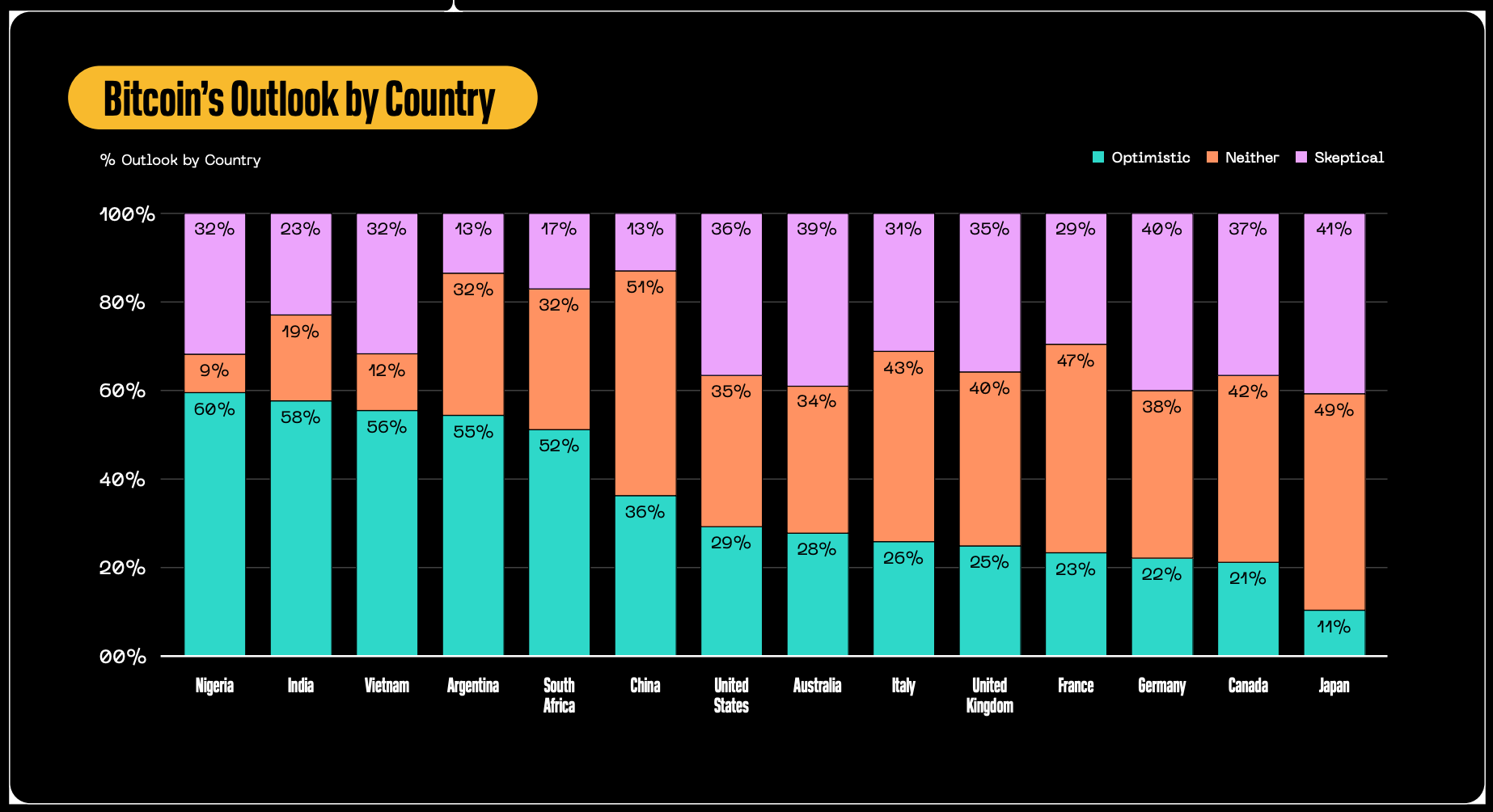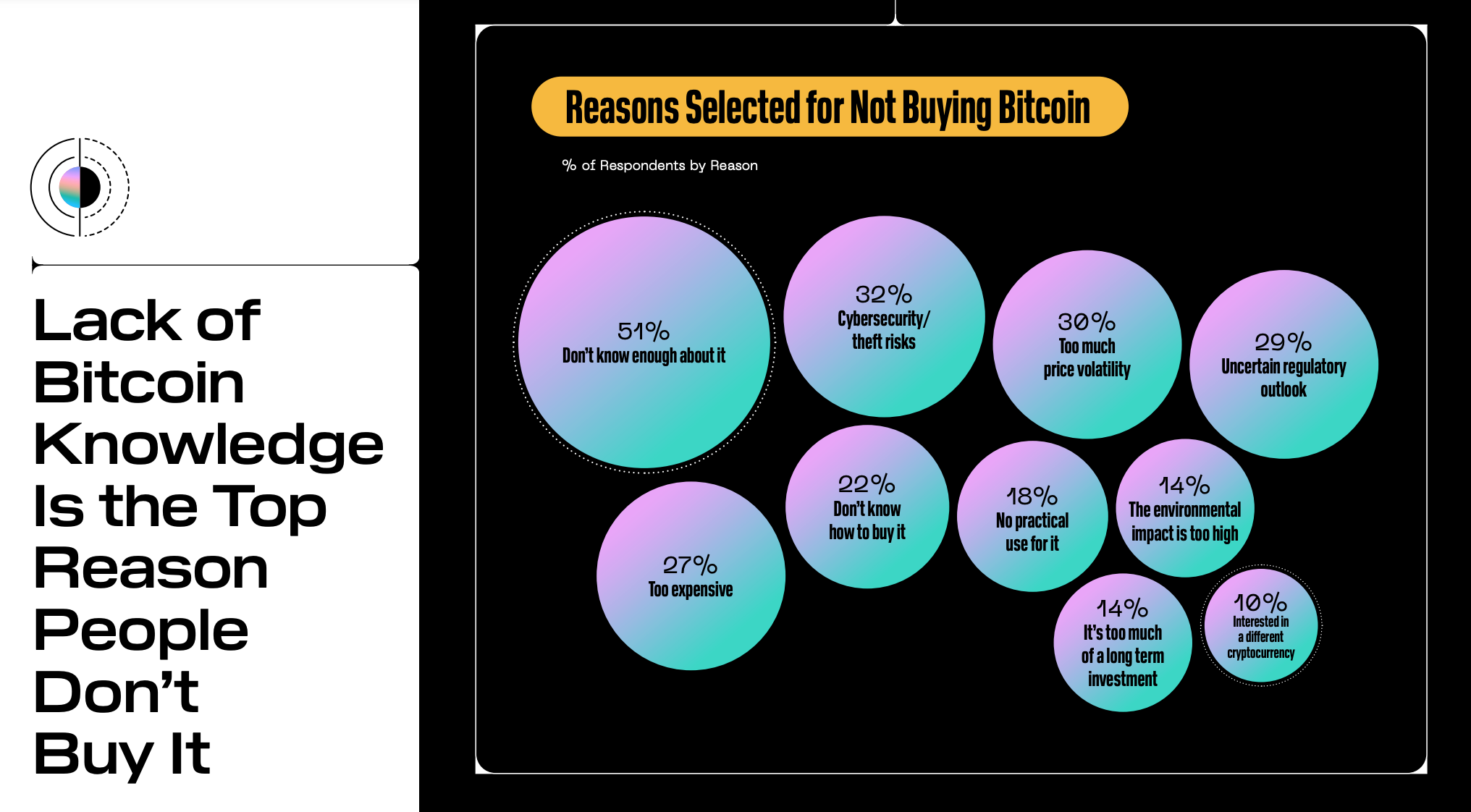
Shoutout to Block Inc. for putting together this research and sharing it with the public.
Here's a great research report put together by Block Inc. and Wakefield Research that aggregates the findings from a survey of 9,500 individuals above the age of 18 broken into three groups:
The Americas (2,375)
Europe, the Middle East, and Africa (4,360)
Asia Pacific (2,860)
The findings are extremely illuminating. Those with more income view bitcoin as an investment vehicle. Those with less view bitcoin as a utility providing payment network that allows them to move money in a much more efficient and resilient way. Women in Europe, the Middle East, Africa, and Asia Pacific have a better understanding of bitcoin than women in the Americas. And individuals living in countries that have experienced bouts of hyperinflation and weaponized payments networks are significantly more optimistic about bitcoin's future compared to those living in countries with relatively stable monetary and payments systems.

Another very important lesson this research report highlights is that the number one reason individuals are hesitant to adopt bitcoin is because of a lack of understanding about how it works.

Almost every bubble in the above graphic is a low hanging fruit that can be addressed over time. Getting quality, digestible information about how bitcoin works and why it is important is the most high leverage thing bitcoiners can do to help spur more adoption. Currently, the conversation around bitcoin is confined to Twitter, YouTube, technical mailing lists/forums, and GitHub. Whether you like it or not, one thing bitcoiners can do to try to close the information gap is meeting the audience where they live these days, which include platforms like TikTok and Instagram. We've been making more of an effort at TFTC to close this gap by posting more on Instagram (give us a follow). On these platforms bitcoiners can begin to educate people that bitcoin isn't too expensive - you can buy as little as $1 worth, direct people to the software that allows them to receive bitcoin for goods or services or buy it directly, highlight the inherent utility a scarce digital asset that runs on a peer-to-peer distributed network provides individuals, and the importance of low time preference, among other things.
Like we said yesterday, the fact that bitcoin has catapulted itself to the 9th largest base money on the planet in the span of thirteen years is extremely impressive. With that being said, there is a lot more that can be done to make more people aware of the importance and beauty of bitcoin as we continue our transition into the Digital Age.
Shoutout to Block Inc. for putting together this research and sharing it with the public. It has provided bitcoiners with a progress report that allows us to hone our focus and fill the information gaps that exist out there.
Onward!
Final thought...
I think I'm getting used to the Texas heat.

